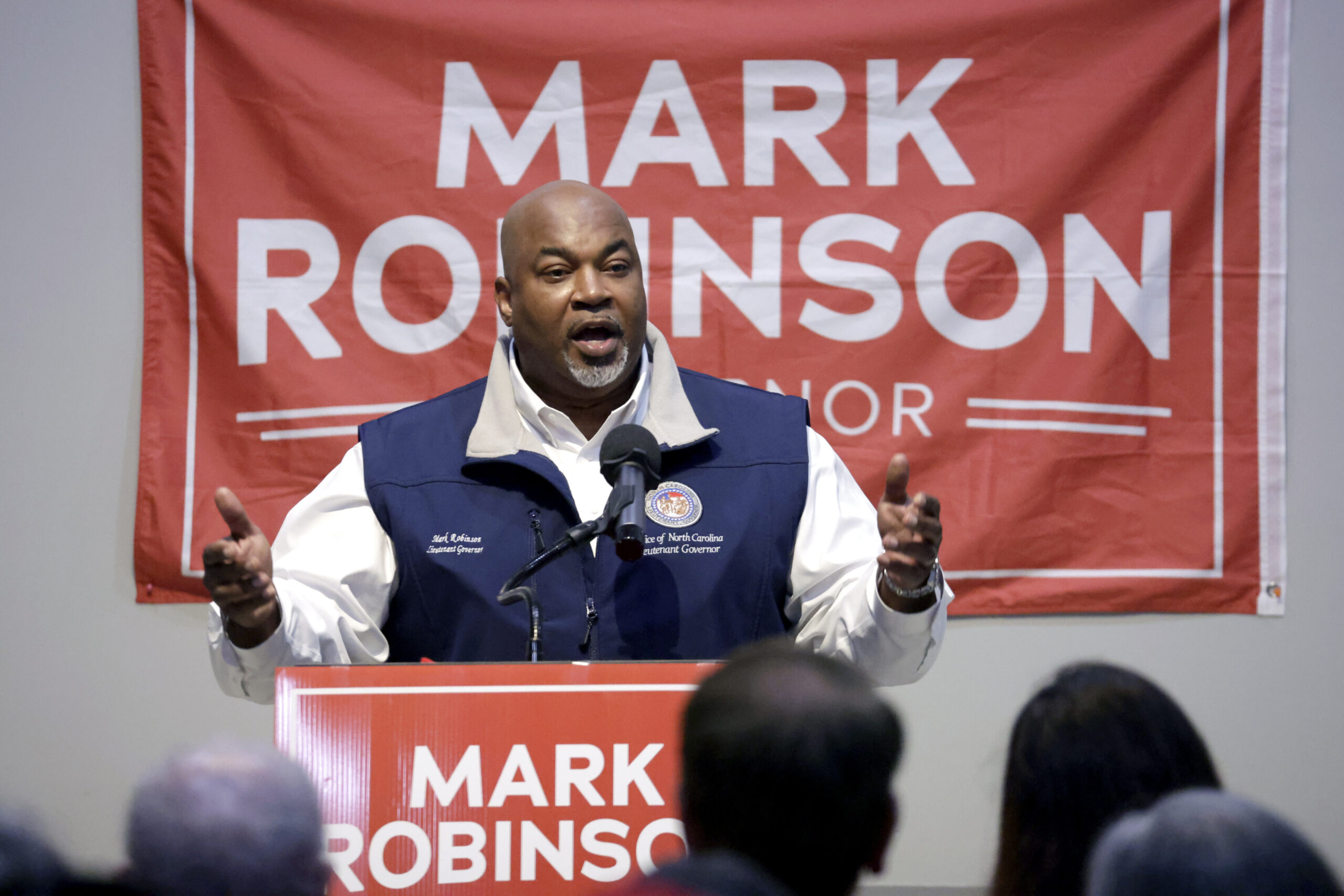

North Carolina voters have big decisions to make on Super Tuesday.
North Carolina represents just one of 16 states and territories formalizing their choices for presidential nominees on March 5. However, the contests prove significantly more contentious for a series of down-ballot races, including five to replace retiring U.S. House of Representatives members.
Here are five things to watch for when Tar Heel State residents cast their votes on Tuesday.
Biden-Trump swing-state preview
President Joe Biden and former President Donald Trump are both expected to continue their easy primary winning streak, earning up to 133 and 74 delegates, respectively, in the process.
Trump carried the state by less than 75,000 votes in the 2020 general election, and he leads Biden by nearly 6 points on average in the Tar Heel State, according to the RealClearPolitics 2024 general election aggregate.
Still, Democrats have targeted North Carolina as a realistic get in the 2024 general, buoyed by a groundswell of support from reproductive freedoms activists in the face of the Supreme Court’s Dobbs v. Jackson Women’s Health Organization decision that rolled back federal abortion protections included in Roe v. Wade.
And Biden will likely need all the help he can get as he trails Trump in seven battlegrounds, including North Carolina, in a poll published Thursday by Bloomberg and Morning Consult.
New congressional maps test run
North Carolina redrew its congressional district map in 2023, giving Republicans a projected four-seat advantage compared to 2022’s even 7-7 split in the delegation. The map is expected to remain in place through 2030, according to state elections expert Michael Blitzer.
“This could be a very long career for whoever gets elected in this primary,” he told ABC News, citing voting behavior within the districts.
Reps. Wiley Nickel (D-NC), Kathy Manning (D-NC), and Jeff Jackson (D-NC) all opted not to run again in 2024 after having their districts redrawn following the 2022 midterm elections. Those open districts are predicted to lean Republican. Reps. Dan Bishop (R-NC) and Patrick McHenry (R-NC), who served as speaker pro tempore in the House after former Speaker Kevin McCarthy was ousted in 2023, are also retiring, leaving rare open seats.
And those five races have drawn a frenzy of current and former state representatives to the Republican contests in particular. Four of the five House primaries feature five or more candidates, escalating the likelihood of runoff elections in May.
Election security fallout
Beyond the new congressional maps, voting rights activists are concerned about the impact new voting security legislation could have on overall turnout.
The Republican supermajority in the state legislature circumvented Gov. Roy Cooper (D-NC) in 2023 to enact new laws that shortened the window to accept and count absentee ballots, banned ballot drop boxes, and required voters to show IDs when voting, both in person and via photocopy when returning absentee ballots. Voting rights activists say the new laws will have a disproportionate impact on black voters.
“These are attempts to suppress votes,” the Rev. Jay Augustine, the pastor at St. Joseph AME Church, said on Feb. 25 before taking part in a “Souls to the Polls” rally.
North Carolina is just one of 14 states to enact new so-called election security laws after the 2020 election, prompted by lawsuits filed by Trump’s supporters.
New year, new governor
The North Carolina gubernatorial primaries will also see heavy competition. Five Democrats, including Attorney General Josh Stein, former state Supreme Court Justice Michael Morgan, Tryon City Councilwoman Chrelle Booker, former Princeville Chief of Police Gary Foxx, and attorney Marcus Williams, are vying to replace the outgoing Cooper.
Stein is viewed as the favorite to earn the Democratic nomination, given his track record of winning in the face of strong support for Republicans above him on the ticket. He won his first attorney general election in 2016, even though the state went for Trump in the general election that year.
The Republican primary will feature Lt. Gov. Mark Robinson, State Treasurer Dale Folwell, and attorney Bill Graham, while two candidates are also running in the Libertarian Party primary, Mike Ross and Shannon Bray.
Revenge on the party-switcher
At the state level, Rep. Tricia Cotham’s reelection bid will be closely watched.
Cotham flipped from Democrat to Republican in April of 2023. She had previously voted for legislation codifying Roe v. Wade into law following the Supreme Court’s Dobbs decision, but Cotham’s party switch helped Republicans secure a veto-proof majority, and she voted in favor of the GOP’s 12-week abortion restriction.
CLICK HERE TO READ MORE FROM THE WASHINGTON EXAMINER
This election will mark the first time that Cotham will make her case to voters after switching parties, which her former Democratic colleagues have likened to an outright betrayal of women in the state. Three Democrats, including Yolonda Holmes, who came in second to Colmes in the 2022 Democratic primary, are vying for the chance to take her on in November.
Polls will close in North Carolina on Tuesday at 7 p.m. Eastern time.





